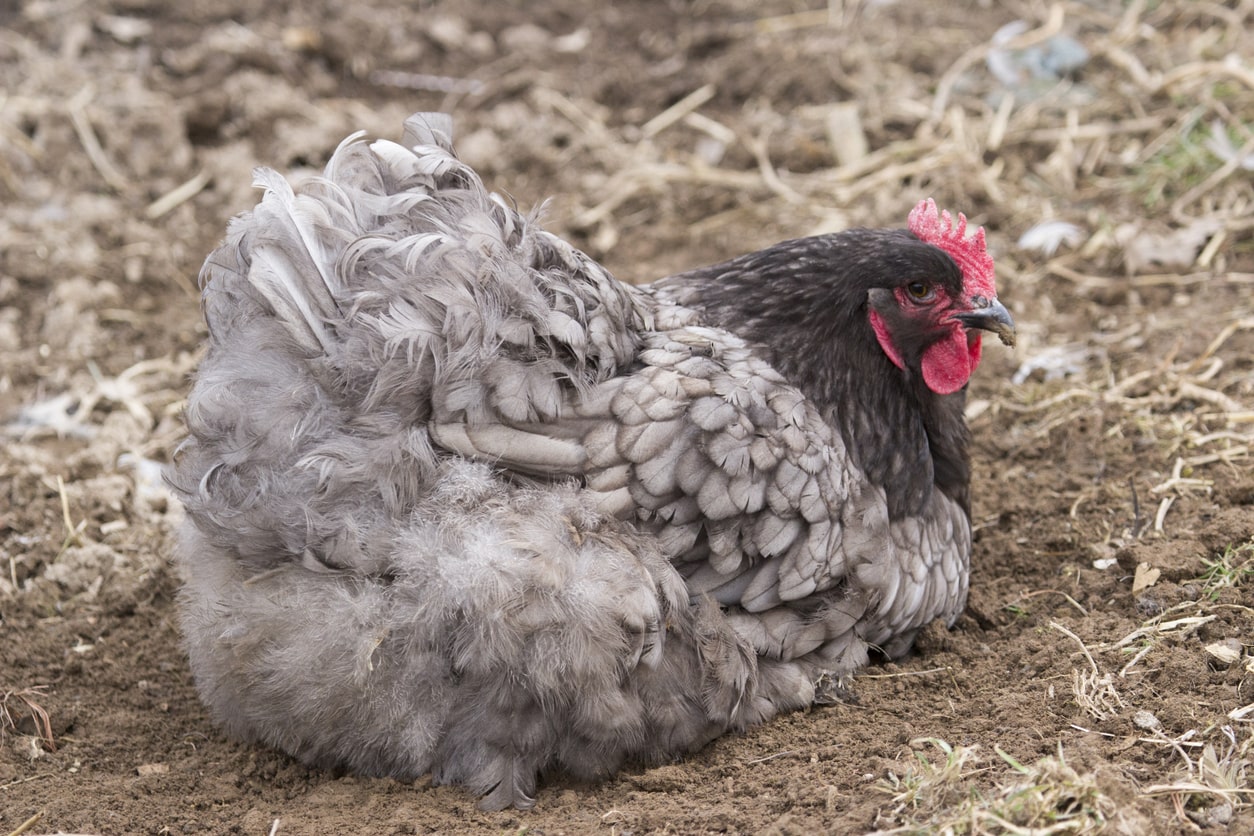A chicken sneezing is a silly and unusual sound. If it happens once in a while, it’s okay to crack a smile and take a video of them. Yet, if they continuously sneeze more than usual, could something be wrong?
This article will take a look at why chickens sneeze, when to be concerned, and how you can prevent it.
What Does Chicken Sneezing Sound Like?
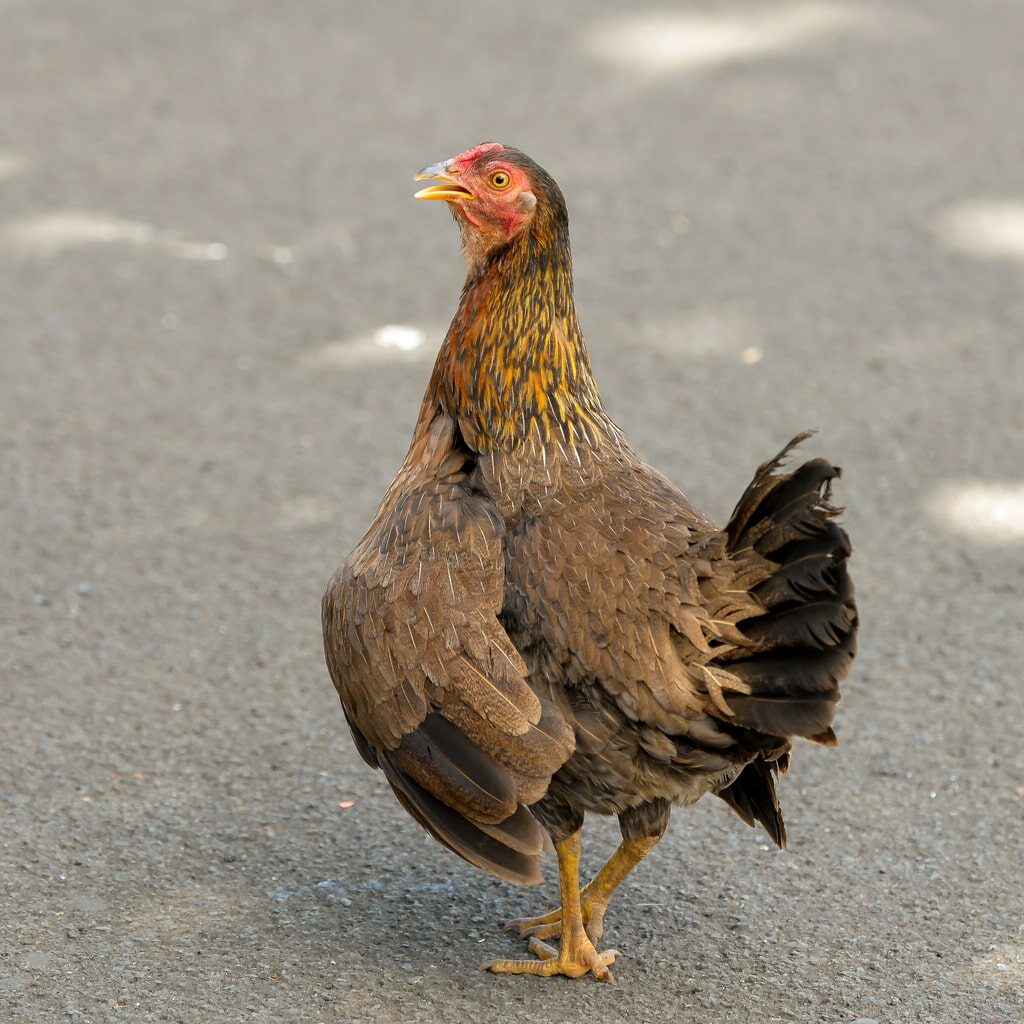
Chickens sneeze just like most animals do. When chickens sneeze, their heads jerk forward and they make a high-pitched squeak sound. It sounds similar to the sneezes of other animals, but it will usually be more piercing.
It’s normal for this to occur on occasion when dust, pollen, or other allergens are floating around. Yet, there are plenty of more serious concerns that also lead to chicken sneezing.
Why Do Chickens Sneeze?
Chicken sneezing is common, especially if they live in an area with lots of dust and pollen. In most cases, single sneezes are nothing to worry about. Yet, if they continue, you might want to visit a vet.
If a chicken sneezes, but then continues doing what they were doing, then there’s probably not a cause for concern. However, sneezing over and over again or sneezing paired with wheezing and coughing should be taken seriously. Here are some possible causes for these symptoms.
Mycoplasma Gallisepticum
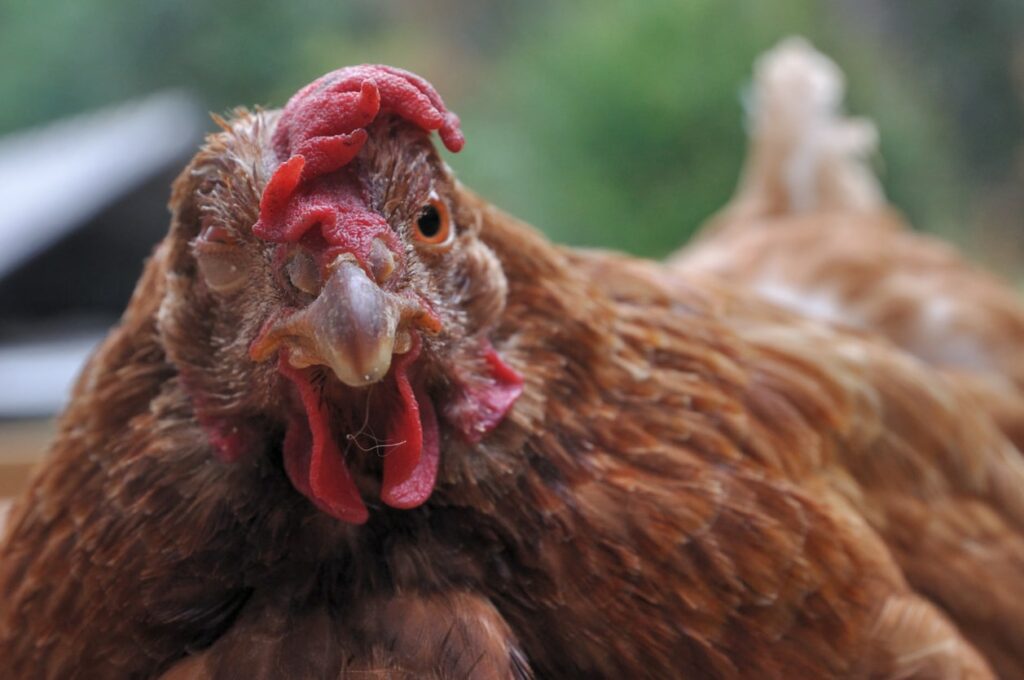
This condition is also known as “buldgy eye,” and it’s common in backyard chickens. It’s a bacterial disease that can be identified by watery eyes, eye discharge, and facial swelling. Some other symptoms include sneezing, coughing, nasal discharge, and head shaking. It can spread from chicken to chicken, so birds showing symptoms should be separated from the flock.
Infectious Coryza
Infectious coryza is another disease caused by bacteria. Chickens who have this usually experience a build-up of mucus in their nostrils, which leads to sneezing and coughing. As symptoms worsen, they could also experience breathing problems, facial swelling, and a lack of appetite. A chicken with this disease can easily infect other chickens, so keep them separated.
Infectious Bronchitis Virus
This virus is contagious and can be passed between chickens. Chicks and pullets are more at-risk than adult chickens. This disease usually starts with coughing and sneezing. You might also notice watery eyes, unusual sounds, nasal discharge, swollen sinuses, and wheezing.
Bird Flu
The bird flu, also known as “avian influenza,” can effect creatures outside of the infected animal’s species. So, if your chicken has it, they could pass it to you. This condition is uncommon, but sneezing is one of the first symptoms you’ll notice. Other behaviors include coughing, lethargy, decreased egg production, nasal discharge, face swelling, tremors, diarrhea, a loss of appetite, and droopy wings.
Newcastle Disease
Newcastle disease is another less common concern, but if it’s not treated in time, it can be deadly. It’s a respiratory disease that can affect any parts of your chicken’s body. It has similar symptoms to the other diseases, including sneezing, coughing, nasal discharge, diarrhea, and lethargy. If it’s not diagnosed soon enough, it could cause life-threatening paralysis.
Infectious Laryngotracheitis
This disease is highly contagious, so birds showing symptoms should be separated. It’s most common in winter months, and chickens may experience sneezing, eye discharge, nasal discharge, and swollen sinuses. It can be deadly if not cared for. However, if the symptoms are noticed early on, your bird can make a gradual recovery.
These are just some possibilities for a sneezing chicken’s diagnosis. If your chicken is showing unusual symptoms, but you don’t know what caused it, reach out to a vet right away.
Treatment for Chicken Sneezing
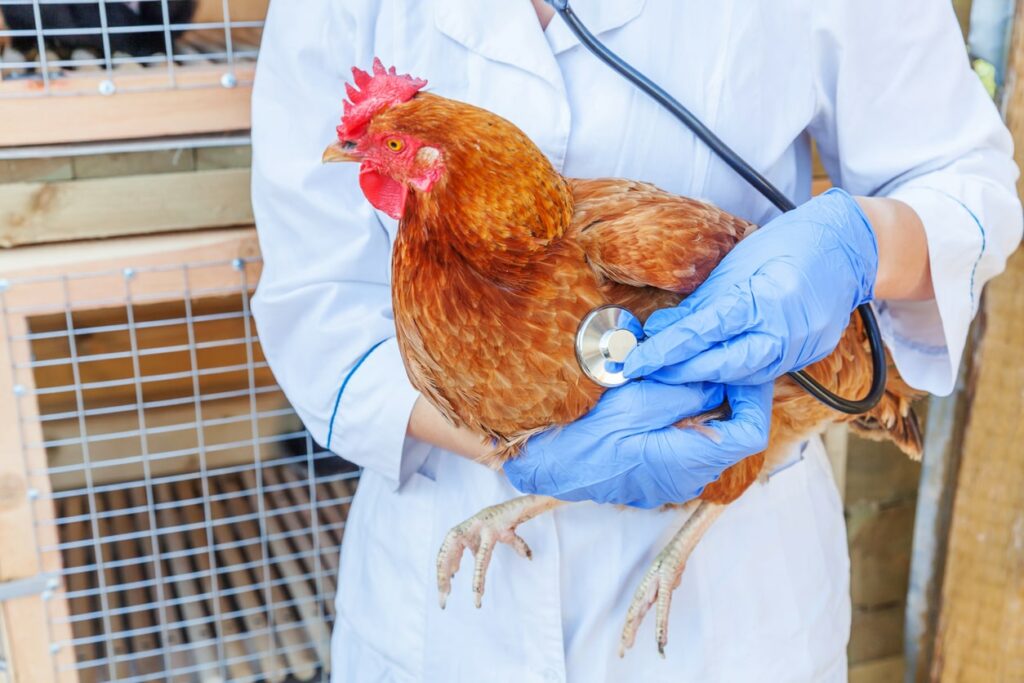
The treatment for chicken sneezing may vary based on the cause. If it’s something minor, such as excess dust in the coop, some additional cleaning should fix the problem. Yet, if your chicken is displaying other symptoms in addition to sneezing, you’ll need to talk to a vet for the next steps.
Antibiotics, herbal supplements, and medications may be needed to treat any health concerns with your chicken. However, it’s best to follow your vet’s advice rather than trying to pick out those products on your own. Choosing the wrong treatment for your birds could make the situation worse.
While your chickens are recovering from a disease, make sure their living space continues to stay clean. Make sure their coop has minimal dust, and provide them access to clean water and fresh food daily. A clean, healthy environment is always essential for raising chickens, but it’s extra crucial when they’re not feeling well.
How to Prevent Chicken Sneezing
Prevention is the key to keeping chickens healthy. Even if your chickens haven’t been sneezing, it’s still a good idea to take precautionary measures to avoid diseases in the future. Here are some tips to follow.
Keep the Coop Clean
The place your chickens live in should be kept clean at all times. Dust building up can also cause an increased chance of diseases entering the coop. Diseases can be spread through chicken feces, so cleaning up bird waste can eliminate the risk.
Your chickens won’t care if their room looks tidy, but the cleanliness could greatly improve their overall well-being.
Provide Proper Ventilation
Not only should their coop be clean, but it should also be well-ventilated. Chickens should be getting plenty of air and oxygen no matter where they’re spending their time, so make sure their indoor areas are spacious with lots of fresh air.
Make Sure Food and Water are Fresh
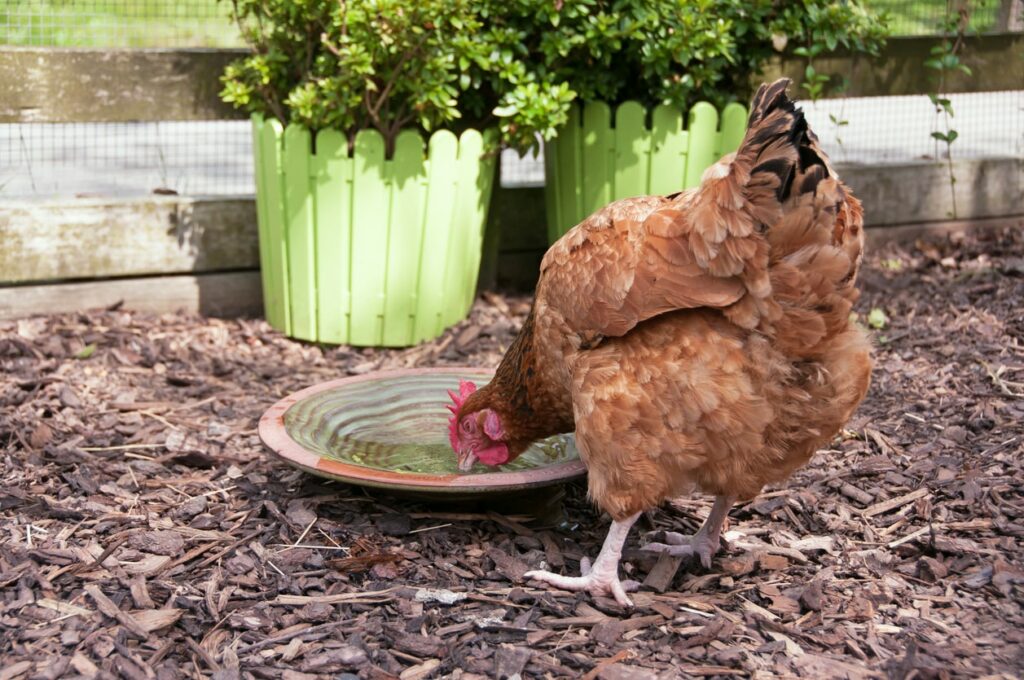
Chickens should be eating and drinking a consistent amount daily. Their food should be suitable for their age, so chicks should have more protein than adults. Adult hens also need extra calcium in their diets.
Every time the water in your chicken enclosure looks dirty, change it. Dirt, debris, and bacteria can build up in your chicken’s water if not replaced enough, which could lead to health concerns. Fresh water and a quality diet are necessary for giving your chicken an immune system boost and reducing their risk of sneezing.
Get Your Chickens Vaccinated
Chickens can get vaccinated like any other domesticated animals. You can vaccinate your chickens to prevent diseases like Newcastle disease, Infectious Bronchitis, and Infectious Laryngotracheitis. Talk to your vet about what vaccinations are recommended for your flock.
Separate Sick Chickens
If chickens are showing symptoms of a disease, including coughing, sneezing, or wheezing, it’s best to separate them from the rest of your flock. Most respiratory diseases are contagious, so giving a sick chicken their own space can help them recover while keeping your other birds safe.
When you add a new chicken to your flock, it’s good to quarantine them. Separate them from other chickens for at least two weeks to ensure that they’re healthy. Chickens that come from unfamiliar places could carry contagious diseases, so it’s best to ensure that they’re healthy before exposing them to the rest of your feathered friends.
Visit the Vet
Chickens don’t need annual checkups like a dog or cat. Yet, you should still familiarize yourself with veterinarians who can take care of chickens. Then, if any of your chickens are showing unusual symptoms, you’ll know exactly where to take them. Knowing a vet that has experience with chickens can help you stay on top of your flock’s health and well-being.
Final Thoughts
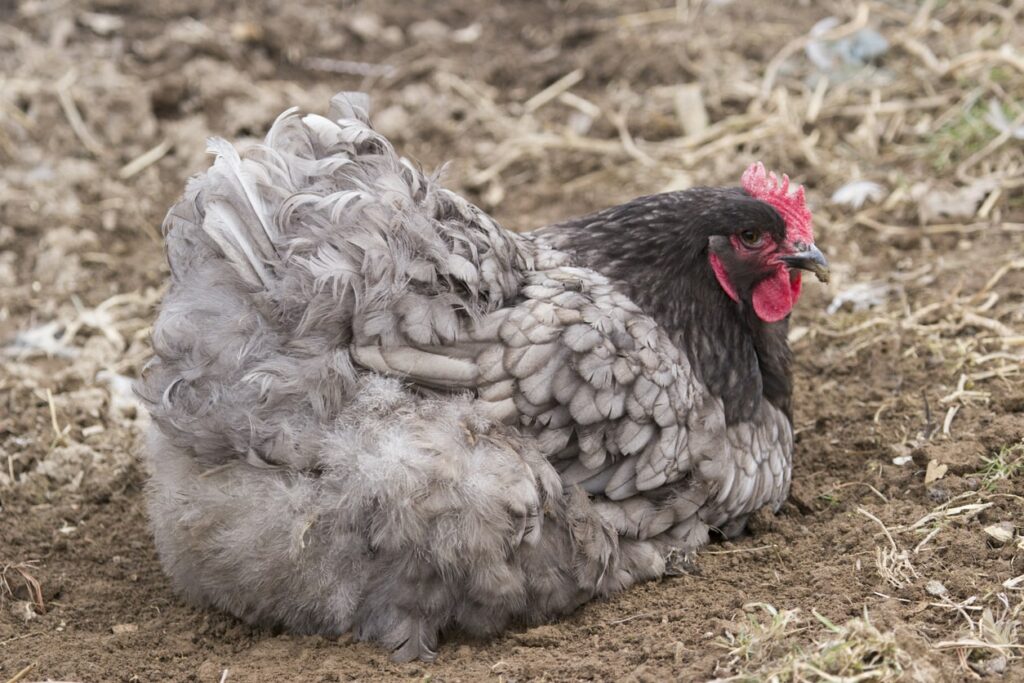
In most cases, chicken sneezing is a minor concern. A little dust floating in the air can make anyone sneeze, but it doesn’t automatically mean they’re sick. So, if you’re concerned about your chicken, look out for other symptoms. If your birds have other unusual behaviors in addition to the sneezing, there could be an underlying health concern.
Most chickens are generally healthy, but it’s always possible for things to go wrong. Keep the coop clean and your chickens safe to prevent contagious diseases from entering your coop. That way, you’ll have healthier chickens, along with better quality eggs.
